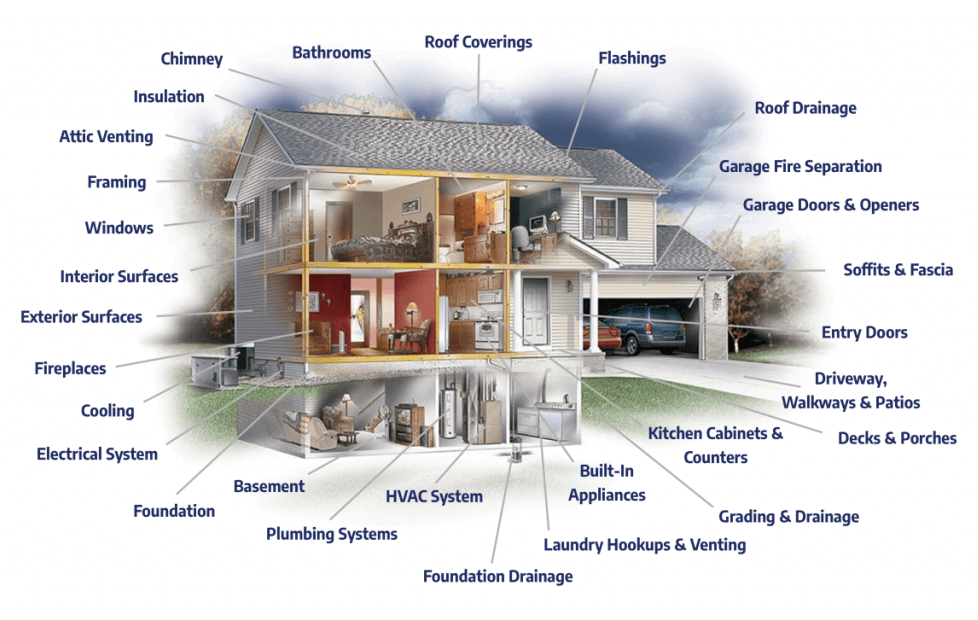A home inspection is a limited, non-invasive examination of the condition of a home, often in connection with the sale of that home.
Home inspections are usually conducted by a home inspector who has the training and certifications to perform such inspections. The inspector prepares and delivers to the client a written report of findings. The client then uses the knowledge gained to make informed decisions about their pending real estate purchase. The home inspector describes the condition of the home at the time of inspection but does not guarantee future condition, efficiency, or life expectancy of systems or components.
Sometimes confused with a real estate appraiser, a home inspector determines the condition of a structure, whereas an appraiser determines the value of a property. In the United States, although not all states or municipalities regulate home inspectors, there are various professional associations for home inspectors that provide education, training, and networking opportunities. A professional home inspection is an examination of the current condition of a house. It is not an inspection to verify compliance with appropriate codes; building inspection is a term often used for building code compliance inspections in the United States. A similar but more complicated inspection of commercial buildings is a property condition assessment. Home inspections identify problems but building diagnostics identifies solutions to the found problems and their predicted outcomes.
In the United States, a contract to purchase a house may include a contingency that the contract is not valid until the buyer, through a home inspector or other agents, has had an opportunity to verify the condition of the property. In many states, home inspectors are required to be licensed, certified, and insured (like in New York) but in some states, the profession is not regulated. Typical requirements for obtaining a license are the completion of an approved training course and/or a successful examination by the state's licensing board. Several states (such as New York) also require inspectors to periodically obtain continuing education credits (bi-annually in New York) in order to renew their licenses and continue practicing the trade.
Ancillary services such as inspections for wood destroying insects, radon testing, septic tank inspections, water quality, mold, (or excessive moisture which may lead to mold), and private well inspections are sometimes part of home inspector's services if duly qualified and something they offer as part of their services.
In many provinces and states, home inspection standards are developed and enforced by professional associations, such as, worldwide, the International Association of Certified Home Inspectors (InterNACHI); in the United States, the American Society of Home Inspectors (ASHI), and the National Association of Home Inspectors (NAHI)(No Longer active 10/2017); Currently, more than thirty U.S. states (including New York) regulate the home inspection industry in some form.

